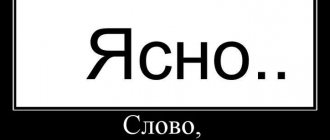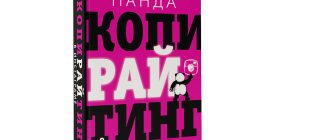You need to respond to the word “thank you” correctly and beautifully. Look for options in the article.
There are practically no people in the world who have never heard words of gratitude. And representatives of such professions as doctors, police officers, firefighters, rescuers, even hear the word “thank you” or “thank you” every day.
Read another article on our website on the topic: “How to respond to the words “Good morning”, “Good afternoon”?” . you will find interesting options, cool, original answers.
How should you respond to words of gratitude? You will learn how to write in a comment on social networks or what to say verbally. Described in more detail in this article. Read on.
How to respond to “thank you”: options
Answers to “thank you”
responding to “thank you” depending on the situation. In some cases, the answer depends on the extent of the favor or the complexity of the assistance provided to the person. The following answer options for “thank you” and “thank you”
- Please
- My pleasure
- Do not mention it
- This is my job
- Come again (if you work as a sales manager)
- Happy to help
- Contact us again
In some cases, you can emphasize your affection for a person and call him by name. Some people specify the answer:
- “Please don’t get sick, please.”
- "Happy to help! But next time be more careful."
- “It's okay, it's my job. But next time, don't push the tooth so hard. The smaller the lesion, the easier it will be to treat.”
Sellers may say:
- “No need for gratitude, use it for your health”
- "You're welcome, may it last a long time"
- "My pleasure! Enjoy using/wearing"
- "Please! Wear it with pleasure!”
But some psychologists believe that the answer “no way ” is too impersonal. The interlocutor may have the feeling that this is a “standard answer”, specially created to get him off the hook. It’s best to say: “No need for gratitude”, “I was glad to help”, “For me this is a couple of trifles”, etc.
How to respond correctly to “thank you”, “thank you”?
There are situations when it is unacceptable to simply speak in stock phrases. Therefore, you need to give a detailed answer. This will make people more pleasant to talk to you. How to correctly respond to “thank you”, “thank you” ? Here are the options:
- Do not mention it! Contact us!
- I was glad to help you!
- It wasn't difficult for me at all. I'd be happy to do it again if you need help.
- That's why we are friends, to help each other.
- One good turn deserves another. Today I helped you, and tomorrow you will help me out.
- My friend, this is nothing! Cheers!
- You are welcome!
- Ours for you with a brush!
- Come on, forget it (peer, friend).
- I was very glad to assist you.
- You're welcome! Be healthy!
- What do you! This is nothing! It's an everyday matter!
- You can always rely on me. Happy to help!
Below are even more original options. Read on.
I owe you one. - I am in your debt.
In the movie Blade Runner, replicant Rachel talks to detective Rick Deckard:
What if I go north? Disappear. Would you come after me? Hunt me?
No, I wouldn't. I owe you one. But somebody would.
Translation
- What if I go north? I'll disappear. Will you look for me? Hunt me? - No, I will not. I owe you. But there will be others.
How to respond beautifully to “thank you”?
Responses to “thank you”
Gratitude should be positive. After all, a person is always happy when he says such words, because they helped him, they came to his aid. How to respond beautifully to “thank you” ? Here are the options:
- May your gratitude that you express to me transform into a good mood that will accompany you all day. Good luck, don’t get sick, always be happy and healthy! And if anything, come! I will always be happy to help you.
- For such a kind, sweet and sensitive person like you, nothing is a pity. I'm glad I helped you. May you never have any more problems in your life!
- There is no need for gratitude, my dear friend. After all, I helped you not for a “thank you” but for free. I really hope that my efforts were not in vain. Be happy!
- Helping you is a piece of cake for me. You are truly a very good person, for whom nothing is a pity. And a piece of my soul will always remain next to you. She will protect you from winds and adversity and will become a guiding star on your path in life.
If you need to say an answer to a good person and you want to surprise him, then do it in a humorous way. Read on.
How to respond to “thank you” funny?
Sometimes it's so difficult to find the right words. Especially if you need to say a response to gratitude. When choosing an answer, you need to take into account the circumstances at the moment, as well as the mood of the interlocutor. And if you want to make him laugh, then “get” humor. How to respond to “thank you” funny? Here are the options:
- Thank you - Beaver/carpet in your nostril.
- Thank you - I’m here... I’m on fire...
- Thank you - I adore you.
- Thank you - now I’ll persuade you to do something.
- Thank you - I soar like a bird in the sky.
- Thank you - Says forty to the wood grouse.
- Thank you - It’s better if you give me some material benefit.
- You can't put a thank you in your pocket. Better with money.
- Of course you're welcome. But here is my card number.
- What a “thank you”! Do you know how much you owe me now?
- Do not mention it. I'll send you the details.
- Well, now you owe me and I can do whatever I want with you. Within reasonable limits, of course.
- You're welcome! Now get down on your knees, slave, and kiss your mistress’s feet!
- You all say “thank you.” At least he gave me the keys to a Mercedes! Here come the men!
This will make for a very interesting dialogue. Try it and you will see how the other person will treat you much better.
"Thank you" is a shield
And today, when a person is uncomfortable with a conversation and wants to end the conversation, the first thing he says is: “Thank you, I have to go,” “Thank you, but I don’t need this,” “Thank you, but call me later.” Unconsciously, people perceive this phrase as a way to isolate themselves from someone, move away from them, and remove them from their lives.
Since the word “thank you” is a kind of barrier between the one who pronounces it and the one to whom it is addressed, it is recommended to say it only if a person wants to communicate less with a specific acquaintance.
Or if he is not sure that the gift was given sincerely, in this case it is also better to say “thank you” as a sign of gratitude. This word helps to secure the space around you so that negativity does not penetrate you.
How to respond to “thank you” in writing, on social networks?
Answers to “thank you”
It has been scientifically proven that in the 21st century a person spends most of the day on the Internet. There you have to accept congratulations, thank and respond to gratitude. In fact, there are always a lot of options for answers - it all depends on the context of communication. How to respond to “thank you” in writing, on social networks?
In most cases, you can send a ready-made postcard or make a “general post” in the style:
- “There is no need for gratitude, my friends! It was not at all difficult for me to please you. After all, you are the best in the world. You are the kindest, most faithful, sweet and caring. I value you very much. Therefore, I appreciate your words of gratitude. Remember, you are not just friends to me. You are my family" .
If you have to respond to gratitude in messages, you can use both the banal “You’re welcome”, “I’m always glad”, “thank you too”, “I was glad to help” , and original options:
- “Of course, I’m not a superman, but for your sake I was ready to do the impossible.”
- "Do not mention it. I helped you simply because it was on my way. In fact, I'm saving the Universe from the Martians. And this is a much more dangerous activity.”
Often it all depends on the user’s imagination. The main thing is that people understand that the original answers are humorous and harmless. You can also answer briefly:
- "Do not worry"
- "Never mind"
- "Do not mind it"
- "Forget"
In cases where the help provided was trivial, not worth even lengthy correspondence and conversations, you can answer in just one word, one of the options above.
Energy of words
It is important how (with what) we charge words and how consciously we pronounce them.
If you do not put energy into words , then they are more likely to fulfill the program embedded in them (I recommend then reading the article Energy of the Word: the meaning of greetings in English and Russian and the Secret energy of vowels and consonants).
If we invest our energy, then we change them. If the re-flashing is lame, inept, weak, then at such moments we can feel that “something is wrong,” “something doesn’t fit together.”
And you know those people whom you can listen to and listen to, often without even paying attention to WHAT is said, because it is important HOW it is said - such people are masters of charging their speech with energy. And when listening to such people, if we want to not only absorb energy, but also understand with our minds what they are saying, we need to remind ourselves to listen with our minds, we need to switch our attention from the pure flow of energy to the words themselves, the content of speech.
It is no coincidence that since childhood and to this day I have not heard or listened to the lyrics to songs, which surprised many people. I listen to sound, accept pure energy, harmonious sound is important to me. For informational content, you can read poetry or other text works. I may not know what even my favorite songs are about.
Realizing that the energy of sound (form) is perceived by humans much better than content, Hollywood spends millions of dollars on sound design. And news in Russia is read out with the same intonation, just as it is minted. Try to put different content on the same voice - you are unlikely to get a positive charge.
How to respond to “thank you” to a girl?
In this case, it is important to understand whether the girl likes you or not. If she feels sympathy, then the banal “always happy” will not be enough. The girl will be waiting for something more original and inspiring. Imagine yourself as a knight on a white horse (even if you are not one). How to respond to a girl thank you? The following turnovers will be effective:
- I'm ready for anything for you.
- Beautiful girls don't have to thank you.
- What are you talking about, it’s only a joy for me to help you.
- For your sake, I am ready to get a star from the sky.
- You're too charming. So, I might as well not say “thank you.”
- Actually, I didn't want to help you. And then I looked into your eyes - and everything happened by itself.
If the girl is a stranger and you helped her in transport or on the street, simply answer “You’re welcome” or . ” That's enough. The main thing in communicating with a representative of the opposite sex is not to speak in cliches and clichés. You can “hone” your sense of humor, mix it with romance and you will get the ideal answer in the case of this or that pretty person.
This means a lot to me. “It means so much to me.”
In The Big Bang Theory, Rajesh asks his girlfriend to come to his friends' party:
You know, I've been thinking that maybe meeting somebody one-on-one is too intense, so... Friday night, my friends are having a party.
I'm not sure.
Oh, please? Don't make me beg.
Okay.
Thank you! This means a lot to me. My friends are like my family.
Translation
“You know, I was thinking that maybe dating someone one-on-one was too stressful, so... My friends are having a party on Friday night.” - I'm not sure. - Please. Don't make me beg. - Fine. - Thank you! This means a lot to me. My friends are like family to me.
How to respond to “thank you” for your help?
Responses to “thank you”
Having received timely assistance, the “victim” is ready to drown everyone in his gratitude. But the “saviors” are not always ready for such pressure. How to respond to “thank you” for your help?
- Thank you, this is my job – the “without emotions” option. They are used when this is an ordinary visitor to your institution whom you see for the first and last time.
- I was glad to help, contact me - this is a more sincere option. Encourages further cooperation.
- I was very glad to provide you with timely advice/assistance/help you make a choice. If you need me, you always know where to find me. By the way, here's my business card.
- Do not mention it. For me this is a no-brainer.
- Don't thank me. The safety of civilians is my direct responsibility.
- Any self-respecting person in my place would have done the same.
If you provided help and were thanked, then you need to respond. Learn a couple of options so that you don’t get confused at the most crucial moment.
It's so kind of you. - So kind of you.
In the biopic Bohemian Rhapsody, Freddie Mercury's girlfriend Mary Austin introduces him to her boyfriend, who is excited about a Queen concert.
Magnificent show.
Thank you. It's so kind of you , I appreciate it.
Translation
— A grand show. - Thank you. You are very kind , I appreciate it.
How to respond to “thank you” in the zone?
As a rule, prisons do not like ostentatious politeness. For help, decent prisoners expect not verbal, but material benefits: as a rule, this is tea for the production of chifir or tobacco, which is considered a very valuable resource. How to respond to “thank you” in the zone? If a particular zone does not have any special traditions, then we can say this:
- Don't worry, brother. Everyone here is their homies. The prisoner way of life is one!
- You're welcome, bro! From the heart!
- For a “thank you” you can run free. And then think about how you will be useful to us.
- Just a “thank you” won’t get you off! A fitting should be organized (and then the newcomer will think about giving his “benefactor” a carton of cigarettes or a package of tea).
- Are you saying that you are giving a benefit? And where? (and again, it should be made clear that you need to thank with something significant and food).
- Where was your “good” when they accepted me as garbage? Okay, let's settle it. For such help, my fee is simple - 2 packs of Prima and 3 packs of tea.
Below are a few more options. Read on.
How thoughtful of you. - How sweet it is.
In the drama "Diva" the main character Florence dreams of becoming a singer. In one of the scenes in the film, she is given a record, which she gratefully accepts.
I have a little gift. My recording of the Bell Song with Lily Pons.
Oh, Arturo, how very thoughtful of you . Thank you. You know, we are so looking forward to that concert.
Translation
- I have a small gift. My recording of the song "Bell" with Lily Pons. - Oh, Arturo, how sweet it is . Thank you. You know, we are looking forward to this concert.
Reply to “thank you” by concept
There is an opinion that the options “thank you” and “good luck” are not used in “not so remote” places. The first one is sometimes even severely punished. That is why prisoners use the following variants: “from the heart”, “emotionally”, “thank you”, “thank you” , etc. What should be the response to “thank you” according to the concepts?
- As mentioned above, in the zone the answer is most often “material”: tea, cigarettes and other valuables that are very difficult to get.
- In some cases, the “quid pro quo” rule works.
- You remain indebted to your “benefactor.”
- And next time you have a “bleed from the nose” you will need to help this person out of a difficult situation.
Some people use options such as “our people - we’ll be counted”, “you can’t put a thank you in your pocket”, “three packs of tea and we’re even”, etc.
Below are even more different options for different situations. Read on.
Similar questions
First of all, I would like to know your diagnosis. Then, what does it mean – “there is nothing serious”? And what is NOT serious? What are your fears based on?
If there are seizures, they need to be treated. If there are no seizures, then this is one of the many phobias. Phobias, by the way, can also be treated.
Dehydration, or rather the pathological redistribution of water in the body, is one of the main causes of a hangover. Alcohol is a diuretic, that is, a diuretic: it suppresses the brain's production of the hormone vasopressin, which regulates water-salt balance. Another part of the moisture is removed from the body through breathing. Rapid breathing helps to accelerate fluid loss, almost doubling: and in a state of intoxication and a hangover, a person breathes more often: this is the body’s reaction to the presence of alcohol (and about a tenth of the alcohol is eliminated with exhaled air).
This is why you are so thirsty in the morning (the mucous membranes dry out, popularly called “dry water”). On the other hand, with a hangover, a person swells; scientifically speaking, tissue swelling appears, sometimes noticeable, and sometimes revealed only by palpation. But it is swelling that causes headaches and puts stress on the heart. That is, there is an excess of water in the tissues, but there is a lack of circulating blood volume.
So, you can just drink water, but then the osmotic pressure in the blood plasma will decrease (determined by the concentration of dissolved substances and salts). Osmoreceptors, closed to the central nervous system, will quickly react, and you will want to go to the toilet, because the kidneys will receive a signal to get rid of supposedly excess water. This means that it will not be possible to immediately replenish the water shortage, and the process will take a very long time.
Therefore, before drinking water, it is wise to replenish the loss of electrolyte salts: for example, drink a glass of brine: cabbage or cucumber.
By the way, in fact, the folk remedy for a hangover was cabbage, not cucumber, pickle. Unlike cucumber brine, cabbage brine contains succinic acid. The same applies to sauerkraut.
How to respond to the word “thank you”?
Answers to “thank you”
This word is not much different from “thank you” . Therefore, the options will be similar. How to respond to the word thank you? Here are some options:
- "Do not mention it"
- “Oh, what are you... empty”
- “You’re welcome, it wasn’t difficult for me at all.”
- "To your health"
- “Let it serve for future use”
- "Always happy"
Or you can simply nod your head so that the interlocutor understands that you have heard his gratitude.











